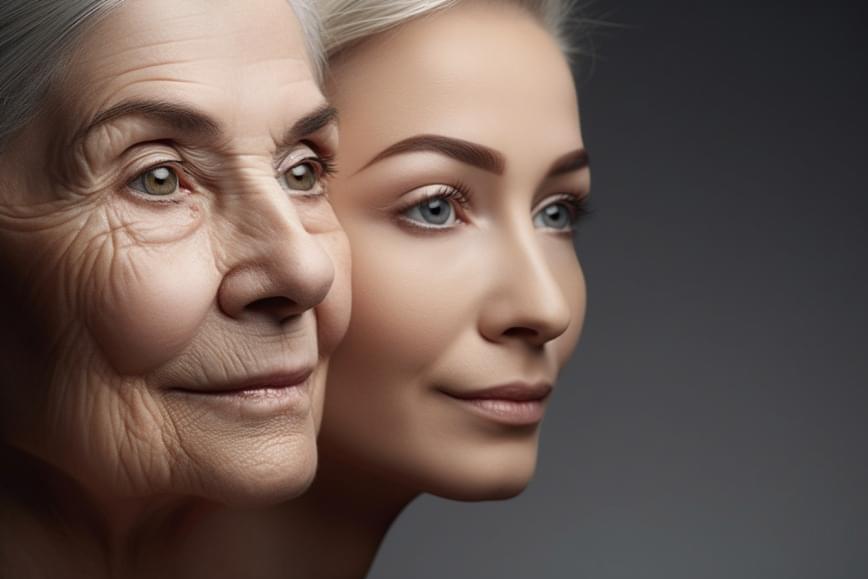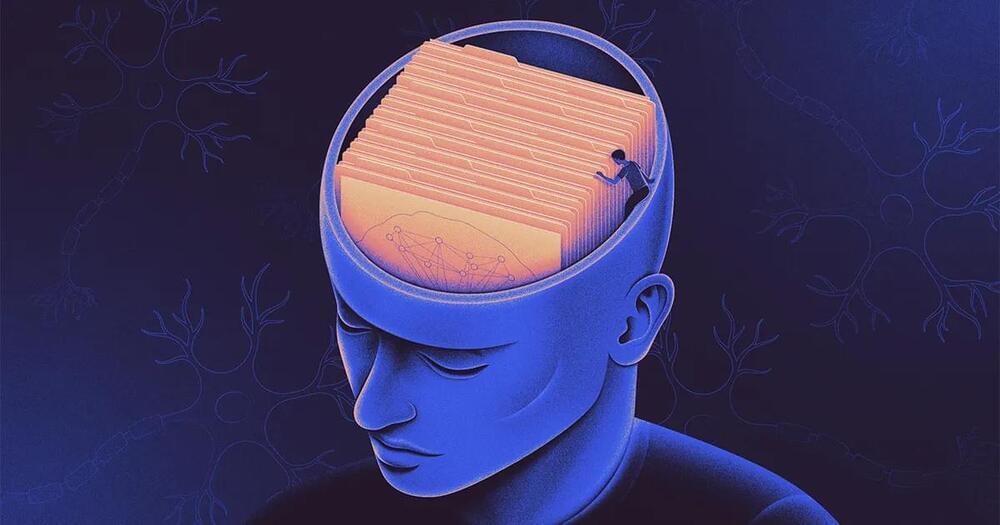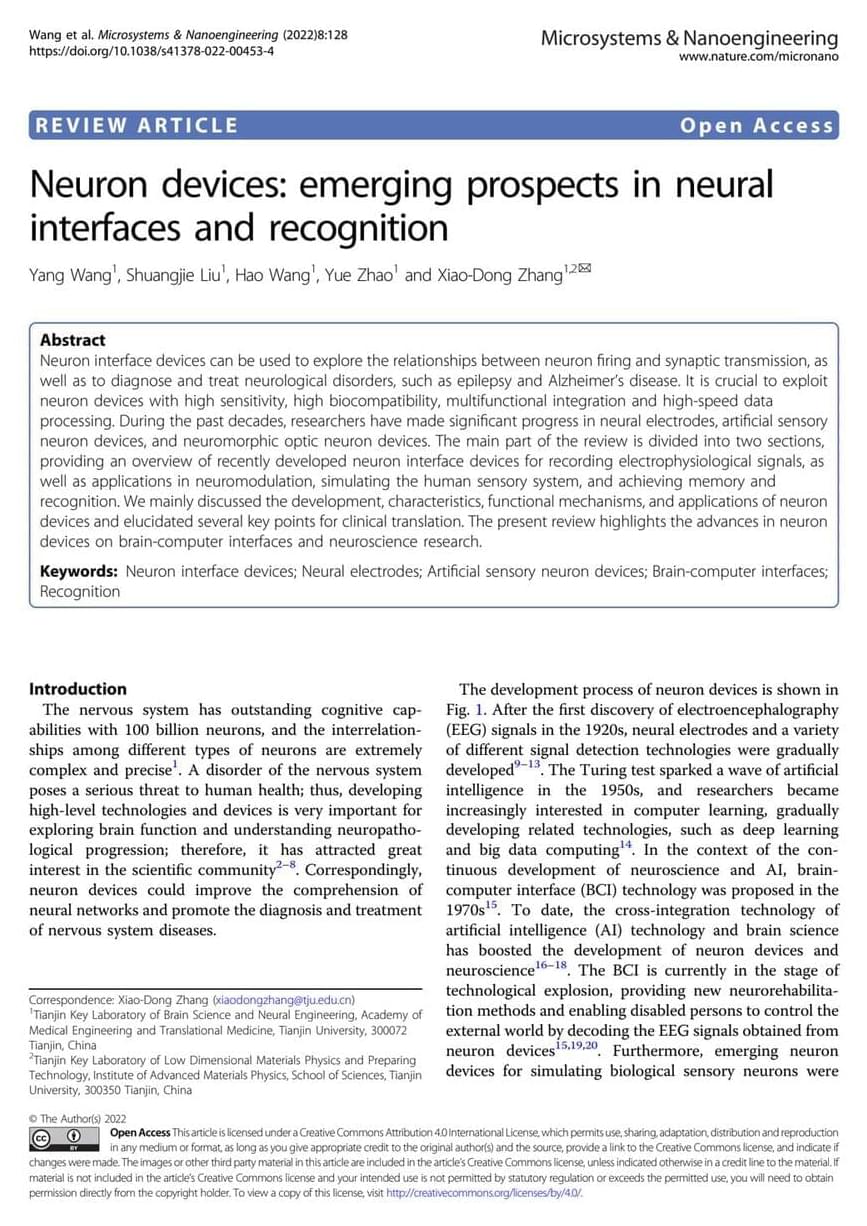Amanda Gefter writes about how our body twitches during REM sleep affect our dreams, and the scientific theories about why we dream.
Archive for the ‘neuroscience’ category: Page 98
Aug 31, 2023
The collective intelligence of cells during morphogenesis as a model for cognition beyond the brain
Posted by Dan Breeden in categories: biotech/medical, chemistry, ethics, evolution, neuroscience
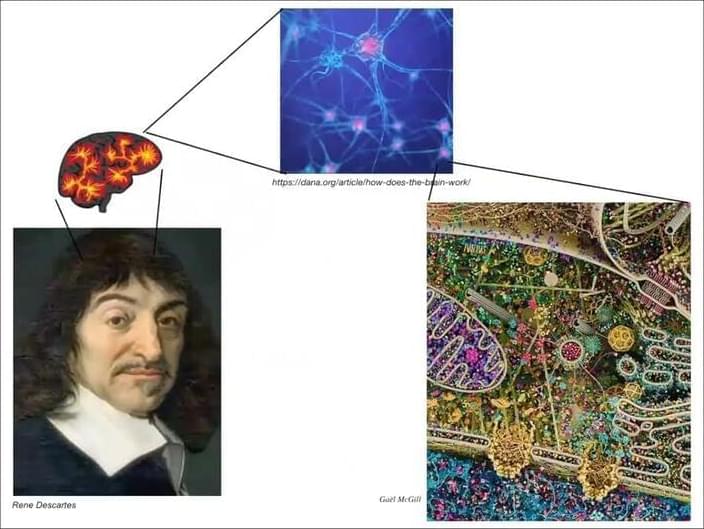
Michael Levin talk for the Mind, Technology, and Society (MTS) talk series at UC Merced on January 23, 2023. Abstract: Each of us makes the remarkable journey from the physics and chemistry of a quiescentunfertilized egg to that of a complex human being. How can we understand the continuousprocesses that scale up minds from the tiny physiological competencies of single cells to the large-scale metacognitive capacities of large brains? Here, I will describe a framework known as TAME-Technological Approach to Mind Everywhere — which enables identifying, understanding, andrelating to unconventional cognitive agents. I will use the example of the collective intelligence ofcells during morphogenesis to illustrate how we can begin to widen the lessons of multiscale neuroscience well beyond neurons. This will be essential as we head into a future that will bepopulated by a wide range of evolved, designed, and hybrid beings with novel bodies and novelminds. I will conclude with a case study of our new synthetic biorobot (Xenobots) and a discussionof the implications of these ideas for evolution, biomedicine, and ethics.
Aug 31, 2023
Michael Levin: Cognition and diverse intelligence in non-neural cellular collectives
Posted by Dan Breeden in categories: biotech/medical, information science, neuroscience
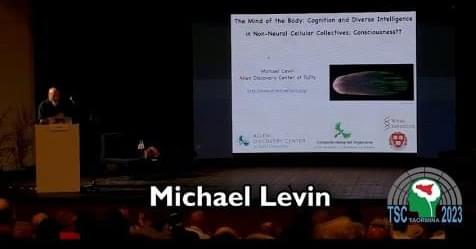
Consciousness is usually ascribed to a specific set of mechanisms and functional capabilities of the complex brain. Importantly, those mechanisms (ion channels, electrical networks, neurotransmitter machinery) long pre-date the evolutionary innovation of nervous systems. Moreover, the algorithms and competencies such as memory, decision-making, and information integration likewise have an ancient evolutionary origin: before they controlled moving the body through 3D space, electrical networks moved body configurations through anatomical morphospace. In this talk, I will describe how we view the morphogenesis during embryonic development and regeneration as the behavior of a collective intelligence, which has many problem-solving capacities. I will describe the tools we have developed, paralleling neuroscientists’ attempts to read and write mental content by control of electrophysiology, to decode and re-write the pattern memories of the body. This has significant implications not only for biomedicine and evolutionary biology, but also for questions about consciousness and the scaling of coherent Selves from agential materials. I will conclude with some conjectures about what this new field offers the science of consciousness, in the form of new embodied living creatures that are outside the natural evolutionary stream of Earth, and the quest for theories of consciousness.-https://www.drmichaellevin.org/ Participate in our online research survey-Survey on Diverse intelligence-https://tufts.qualtrics.com/jfe/form/SV_eE51vKE34q3hexo (takes 9 minutes). Thank you.
Edited by Emilio Manzotti.
https://github.com/emilim/
Aug 31, 2023
Virtual Reality for Supporting the Treatment of Depression and Anxiety: Scoping Review
Posted by Dan Breeden in categories: biotech/medical, neuroscience, virtual reality
Conclusions: Most studies demonstrated the use of VR to be effective for supporting the treatment of anxiety or depression in a range of settings and recommended its potential as a tool for use in a clinical environment. Even though standalone headsets are much easier to work with and more suitable for home use, the shift from tethered VR headsets to standalone headsets in the mental health environment was not observed. All studies that looked at the use of CBT either in vivo or in a virtual environment found it to be effective in supporting the treatment of anxiety or depression.
Keywords: CBT; anxiety; depression; mental health; virtual reality.
©Nilufar Baghaei, Vibhav Chitale, Andrej Hlasnik, Lehan Stemmet, Hai-Ning Liang, Richard Porter. Originally published in JMIR Mental Health (https://mental.jmir.org), 23.09.2021.
Aug 31, 2023
VR Trips Help Treat Depression in the Elderly
Posted by Dan Breeden in categories: neuroscience, virtual reality

Like this video about how Viva Vita addresses loneliness and depression in the elderly using VR. Subscribe here: https://freeth.ink/youtube-subscribe-depressionintheelderly.
Watch the next video in our series on virtual reality therapy: https://youtu.be/IZE41KejIBw.
Continue reading “VR Trips Help Treat Depression in the Elderly” »
Aug 31, 2023
The biological switch that could turn neuroplasticity on and off in the brain
Posted by Dan Breeden in categories: biotech/medical, media & arts, neuroscience
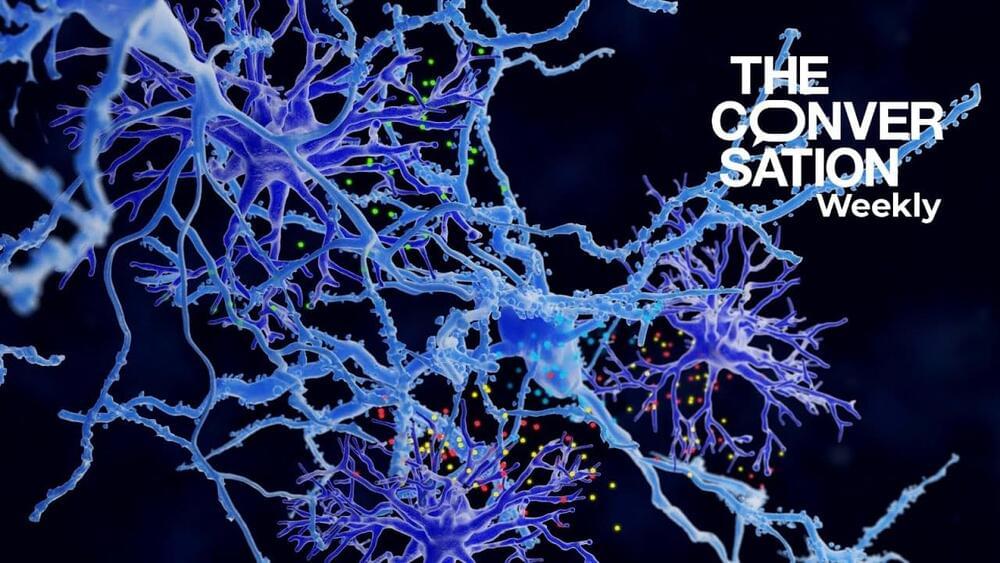
The Conversation Weekly podcast is taking a short break in August. In the meantime, we’re bringing you extended versions of some of our favourite interviews from the past few months.
This week, how researchers discovered a biological switch that could turn on and off neuroplasticity in the brain – the ability of neurons to change their structure. We speak to Sarah Ackerman, a postdoctoral fellow at the Institute of Neuroscience and Howard Hughes Medical Institute at the University of Oregon, about what she and her team have found and why it matters.
Continue reading “The biological switch that could turn neuroplasticity on and off in the brain” »
Aug 31, 2023
Discovered an aging “brake pedal”?
Posted by Omuterema Akhahenda in categories: biotech/medical, life extension, neuroscience
How does the research conducted by Lige Leng at the Institute of Neuroscience of Xiamen University in China (I link it to you here)? It all starts with the study of the “inflamed brain”: many diseases of old age are associated with low-level chronic inflammation in the brain, organs, joints and circulatory system. A phenomenon sometimes called “inflammaging”.
You know it: over time all of our body’s repair systems deteriorate, our DNA and proteins accumulate damage, metabolism stumbles and cells stop doing their job. That’s life, beauty.
We’re all on our way to the exit, but research on worms, flies, mice and monkeys show that going at this speed isn’t inevitable. Diet and lifestyle changes (and, perhaps, upcoming anti-aging drugs) can curb decay and give us many more years of life, especially healthy life.
Aug 30, 2023
Building Tools To Learn Human Brain Processes
Posted by Dan Breeden in categories: blockchains, business, neuroscience, robotics/AI

Aude Oliva is a prominent Cognitive and Computer Scientist directing the MIT Computational Perception and Cognition group at CSAIL while also leading the MIT-IBM Watson AI Lab and co-leading the MIT AI Hardware Program. With research spanning computational neuroscience, cognition, and computer vision, she pioneers the integration of human perception and machine recognition. Her contributions extend across academia, industry, and research, making her a distinguished figure at MIT.
Fuel your success with Forbes. Gain unlimited access to premium journalism, including breaking news, groundbreaking in-depth reported stories, daily digests and more. Plus, members get a front-row seat at members-only events with leading thinkers and doers, access to premium video that can help you get ahead, an ad-light experience, early access to select products including NFT drops and more:
Continue reading “Building Tools To Learn Human Brain Processes” »
Aug 30, 2023
The Usefulness of a Memory Guides Where the Brain Saves It
Posted by Dan Breeden in categories: futurism, neuroscience
New research finds that the memories useful for future generalizations are held in the brain separately from those recording unusual events.


